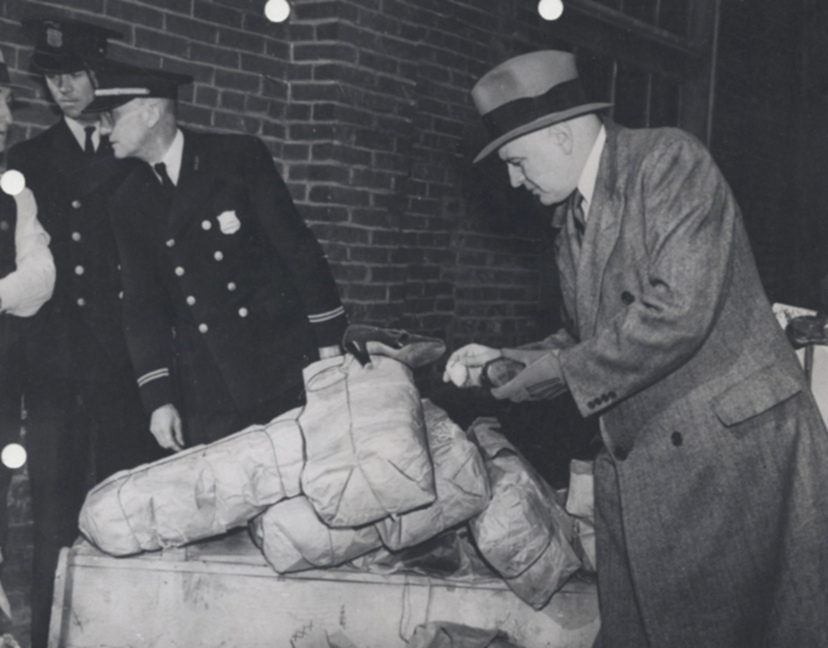I’ve always traced the War on Drugs in the U.S. to the Nixon Administration, but British journalist Johann Hari, author of the book Chasing the Scream, dates it to the end of Prohibition, particularly to bureaucrat Harry Anslinger, a stern-faced Fed who looked like Mussolini as played by George C. Scott, who later mentored Sheriff Joe Arpaio of Tent City infamy. Hari also reveals how intertwined crackdown was (and is) with racism. No shocker there.
The so-called War has been a huge failure tactically and financially and has criminalized citizens for no good reason. All the while, there’s been a tacit understanding that millions of Americans are hooked on Oxy and the like, dousing their pain with a perfectly legal script. These folks are far worse off than pot smokers, but it’s the latter who are still afoul of the law in most states. I’m personally completely opposed to recreational drug use, but I feel even more contempt for the War on Drugs. It’s done far more harm than good. Decriminalize drugs that can be used in moderation, send users of harder drugs to rehab and only imprison those selling drugs to minors. It’s not ideal, but I think it’s a far saner solution. Or try something else; just make it less destructive.
From a LARB Q&A David Breithaupt conducted with Hari, an excerpt about the groups that inspired Anslinger’s folly, a seemingly never-ending waterloo:
He built the war on drugs around the three groups he hated most. The first was African-Americans. This is a man who was so racist that he was regarded as crazily so during the 1920s. His own Senator said he should have to resign because he used the “N word” so much in official memos. He believed that drugs were deranging African-Americans and leading them to attack whites and impregnate white women.
The second group was drug addicts. Anslinger believed that addicts were “contagious” and had to be “quarantined” — cut off from the rest of humanity. These first two groups came together, in his mind, in the form of the great jazz singer, Billie Holiday, who was his worst nightmare: a drug-addicted African-American woman challenging white supremacy. He was obsessed with her. In the book, I tell the story of how he stalked her, playing a key role in her death. The story of how Billie — and so many other Americans at the time — resisted Anslinger and the early drug war is one of the most inspiring I know.
The third group Anslinger hated was the Mafia. And here’s a complexity to the story: he was one of the first senior figures in federal government to realize the Mafia was real. It’s hard to believe now, but the Mafia was seen as an urban myth — like Bigfoot or the Loch Ness Monster. But Anslinger had met these wiseguys as a young man. He knew they were real, and he wanted to destroy them. The tragedy is that the policy he believed would destroy them — drug prohibition — was, in fact, the biggest gift they received in the 20th century. He transferred the enormous industry in drugs from the people who used to control it — doctors and pharmacists — into the hands of organized crime. That’s what prohibition does. Milton Friedman, the Nobel Prize-winning economist, said: “Al Capone was the product of alcohol prohibition. The Crips and the Bloods [and, he might well have added, Pablo Escobar and El Chapo] are the product of drug prohibition.”•
Tags: David Breithaupt

